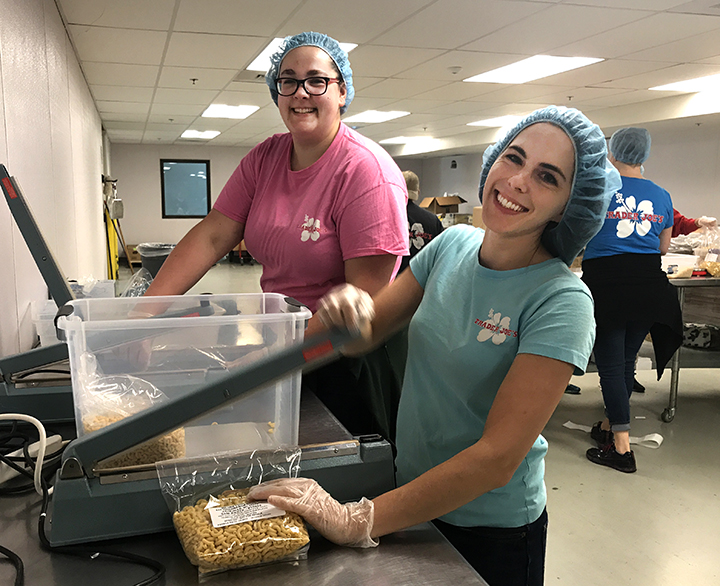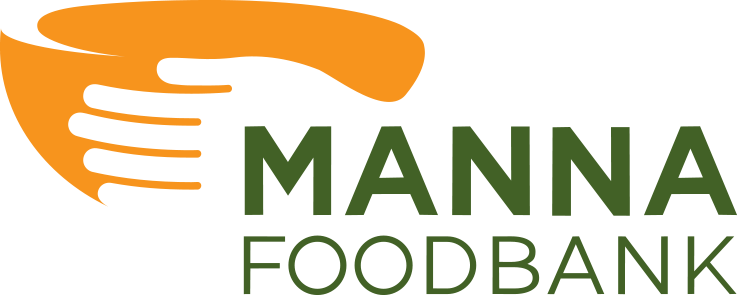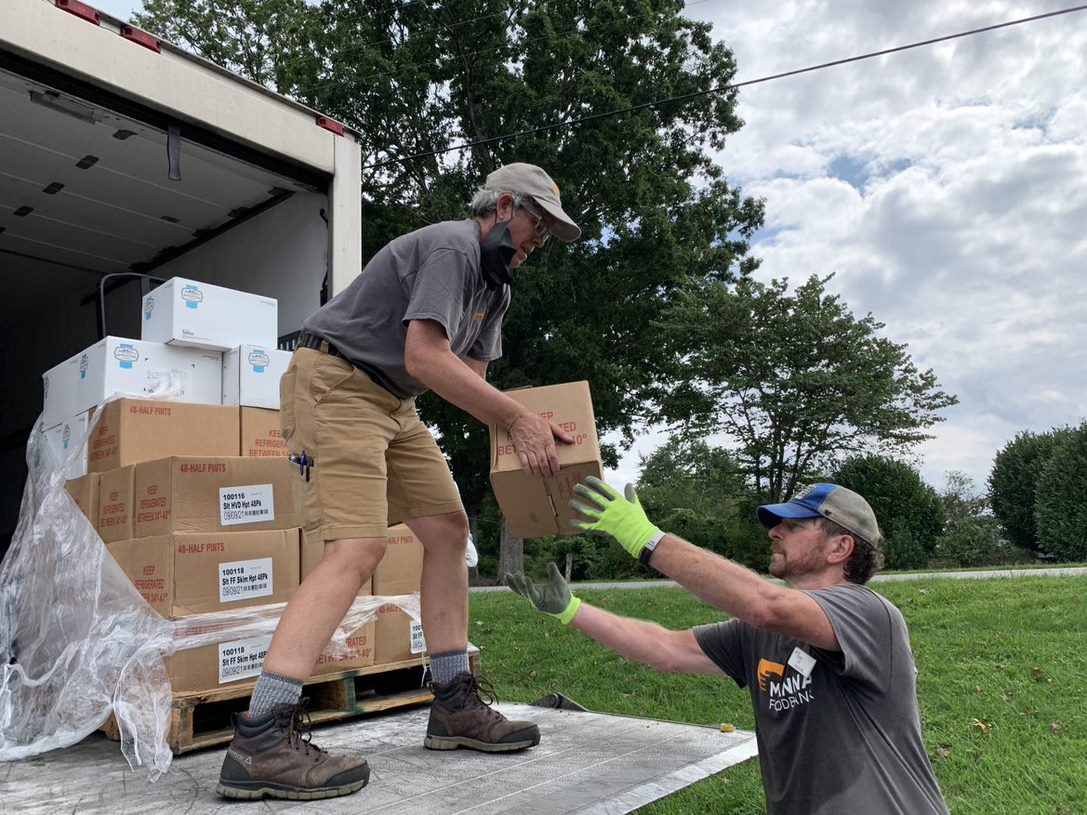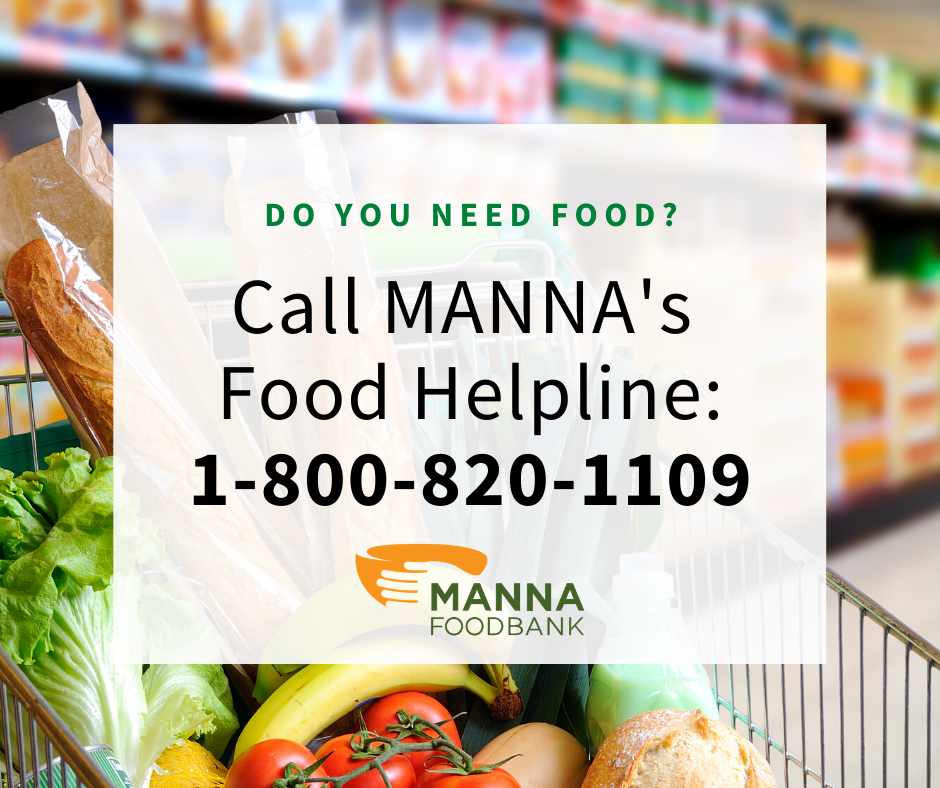Ending Hunger in Western North Carolina

Our Mission
MANNA FoodBank’s mission is to involve, educate, and unite people in the work of ending hunger in Western North Carolina.
Our Impact
Thanks to a strong community of donors, volunteers, and food donors, MANNA stretches every resource possible to provide food to more than 100,000 people facing food insecurity across the region, and we can provide FOUR MEALS for every $1 donated.
What We Do
Food Distribution
MANNA collects, stores, warehouses, and distributes food to dedicated, accredited nonprofit partners throughout 16 counties in Western North Carolina, including the Qualla Boundary.
Where Does the Food Come from?
MANNA relies on the food industry, the state and federal government, as well as local corporate and individual donors, for sourcing the food that is then passed into the hands of our WNC neighbors.
Prior to the pandemic, most of the food MANNA received was donated; other food sources include partnerships with the federal and state government, local farmers, food drives, and food that we purchase on second markets in bulk.

This food is sorted and culled by thousands of MANNA volunteers, and then delivered to hundreds of partners across the region who are part of the MANNA Partner Agency Network. These agencies include pantries, soup kitchens, emergency food suppliers, faith-based organizations, and other nonprofits who provide this food directly to members of their community, free of charge. As the need for food in our region has grown, so has the amount of food that goes through our warehouse and to the tables of the people who need it most. MANNA regularly provides emergency food support to more than 130,000 people every month through these food distribution efforts.
MANNA also works to build and deepen relationships with local and national produce donors rescue produce that might otherwise be thrown away. Our efforts to provide more fresh produce has resulted in millions of pounds of perfectly good food redirected from the landfill to fill plates instead.
Where Does the Food Go?
MANNA distributes food throughout WNC through a partner network of more than 200 agencies in 16 counties including the Qualla Boundary. We work through a network of partner agencies that distributes the food directly to families in their community according to their individual programs.
Food Access Programs
MANNA provides direct service on a limited basis to those struggling with hunger through our Feeding Children programs, providing MANNA Packs and Summer Packs, and our MANNA Food Helpline, which provides support for people signing up for the Supplemental Nutrition Assistance Program, or SNAP (formerly known as “food stamps”), or needing access to a food distribution location in their area.
Feeding Children: MANNA Packs and Summer Packs for Kids
Working families are struggling to regain their foothold in this post-recession economy. Western North Carolina families and residents face a socio-economic “perfect storm”: highest-in-the-state housing costs that force people to live in more rural areas; an economy is largely driven by lower-paying service jobs and seasonal employment; transportation challenges in and around rural, remote communities that force people to drive long distances to secure employment; and skyrocketing child and healthcare costs that place tremendous strain on working families. Despite their best efforts, many families can’t afford all the food their children need for healthy, normal development. At least 1 in 4 children in our service area doesn’t have access to three square meals a day.
The MANNA Packs for Kids program provides emergency food assistance to public school students throughout all 16 counties and the Qualla Boundary in our service area who receive free school meals. MANNA works closely with WNC schools and other youth-focused partners to identify at-risk student populations and provide food.
Outreach
MANNA Food Helpline
Our Food Helpline is a virtual call center for assistance with SNAP applications and re-certifications over the phone. The Helpline is operated by staff and trained volunteers, and it’s designed to help people navigate the process of applying for Food and Nutrition Services benefits. This innovative direct service program is especially targeted at seniors and working families trying to make ends meet on a limited budget.
For many individuals and families throughout Western North Carolina, every dollar counts. SNAP is an important resource helping to put food on the table. This food assistance program allows people with little or no income to buy nutritious food. FNS can help a family survive a crisis of employment, poor health, or other hardships that can trigger a downward spiral into poverty, and it’s the most effective program for helping families escape poverty.
The program also helps strengthen the local economy and boost jobs in the farm and retail sectors and beyond. For every SNAP $1 used, it generates $1.79 in local economic activity.
Food Finder Tool
This online resource aims to better connect neighbors in need with our partner network of pantries, meal providers, and other nonprofits committed to people facing hunger in the region.
The tool is first meant to be easy to use for our neighbors (both on desktop and mobile). Enter your address and you are presented with a handful of available partners. The tool also provides options to filter results by distance, open days and hours, and various amenities including wheelchair access and Wi-Fi.
You can access the Food Finder here.




